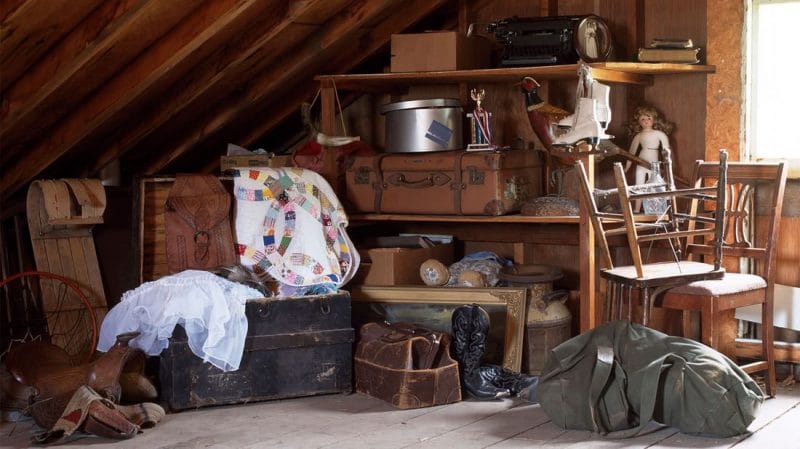So, you’re planning a house move. That’s great news, and you’re about to start a very exciting journey, but it’s littered with opportunities to make mistakes.
The good news? You’ve found this blog post, which will act as your ultimate house move checklist.
When looking for house moving tips online, you’ll find lots of different opinions on how best to undertake this huge step in your life. That’s why we thought we’d put all of our expertise and knowledge into the things that really matter.
So, if you want one house move checklist to beat them all – continue reading!
What do you need to do when moving house?
Moving house can feel very overwhelming, because there are so many things to take into consideration.
However, just like any big project, if you break it down into small, manageable chunks, you’ll have a far better idea of what needs to be done, and the entire process won’t seem quite so daunting any more.
So, without further ado, let’s start our house move checklist with the most important things you’ll need to do.
Research the move and conduct a stocktake
Once you’ve found your perfect new home, had the offer accepted (and, of course, agreed a sale on your old place), you will need to spend some time researching the move itself.
For example, you will need to carry out some additional research if your new home purchase is part of a Part Exchange, Self-Build or Affordable Housing scheme.
You will also need to decide on the items you’ll want to take with you and what can be thrown away or sold, and identify any logistical challenges that might present themselves during the move itself – for example, accessibility (one-way streets; double yellow lines; stairs, etc).
Do this homework now, and you’ll have a much easier time of it come the move day.

Check that home survey again
During the buying process, a survey will have been undertaken on your new home. Make sure you use this time now to revisit that survey and see if there are any items you’ll need to take care of quickly when you finally walk through those doors.
Start packing – early
There is absolutely no harm in starting the process of packing early. In fact, we’d encourage it.
The more of this big task you can get out of the way now, the better. Start with the small stuff and undertake a few runs to the tip to get rid of the clutter and old stuff which simply won’t be needed when you move.
Of course, leave the large, cumbersome items for the professionals on the big day, but make sure you start to create a list of what they’ll be moving for you. Organisation is key, here.

Start to update your addresses where needed
Whether it’s your bank, place of work or driving licence, you’ll need to start updating your address on the contracts and services that matter. You can inform utilities companies and most other services of your new address and moving in date in advance for a seamless transition between addresses.
It’s surprisingly easy to forget to do this once the excitement of moving into your new home takes over, so reserve some time during the quiet period (i.e. now!) to undertake some of this admin work.
Prepare yourself for leaving your old home
Leaving your home for a new place can be an emotional time, but it’s important not to let that emotion get in the way of the move process.
You can say goodbye to your old house, of course, but only do so once you’re fully happy that you’ve removed everything and left no stone unturned. Undertake a final check of each room and make sure nothing has been left behind – then say your goodbyes.

What should you not pack when moving house?
This is a really good question, and it’s one that many people neglect to ask themselves.
You may just assume – understandably – that you need to pack everything for your house move. But that’s rarely the case.
For instance, you probably don’t need to pack the following:
-
large items (they’ll be dissembled or moved for you by the removals company);
-
items you no longer need; and
-
items which you may as well leave behind.
There is, of course, a lot more to each of the above. For instance, if you leave things behind, you’ll need to make the new owners aware or agree a price for them buying the items from you.
Equally, if you expect large items to be moved or disassembled by the removals team, it’s best to check with them first, rather than making an assumption.
The best way to discover what you don’t need to pack when you move home is to make a list of the things you no longer need or want, and work from there.
What is the first thing to do when moving into a new house?
When you finally get into your new home, emotions can, understandably, take over.
However, before you pop the champagne or order that much needed takeaway, there are a few things you’ll need to take care of:
- check you know how to operate the heating and that it works;
- check that you know where the water stopcock is located;
- inspect your delivered items from the removals company and make sure everything is present and correct;
- unpack the essentials you’ll need right now (or tonight);
- have a check around the home for anything left behind by the previous owner;
- give your new home a clean before unpacking; and
- make sure you know how to lock all doors and windows
Then, you can relax a bit before you start the full process of unpacking everything.

When should you start changing your address when moving?
No house moving checklist would be complete without covering this important step.
As mentioned earlier in our guide, you can actually do this well in advance, but there are certain address changes which you may only be able to undertake once in the property.
The best way to organise yourself with this is to make a list of everything that needs changing. Then, contact each supplier or company and tell them your move date – they’ll explain when the best time to change the address will be.
For anything where you need to remember to change it yourself, make sure you set a reminder on your phone for each one, post the move in date.
How do you move house when you have a mortgage?
This is simpler than you might think, but you’ll need some professional help.
There are lots of options for changing mortgage or porting your existing mortgage when you move home. The best thing you can do is speak to both your existing lender and a mortgage advisor to see what your options are.
Just make sure you shop around; it’s easy to pick the wrong deal, and when it comes to such a major loan as your mortgage, that’s the last thing you want to do.
Wrapping up
We hope our house move checklist has proven useful. It’ll be a stressful but ultimately rewarding day, and the more you plan in detail now, the easier it will be to finally get the keys to that new home and start afresh.